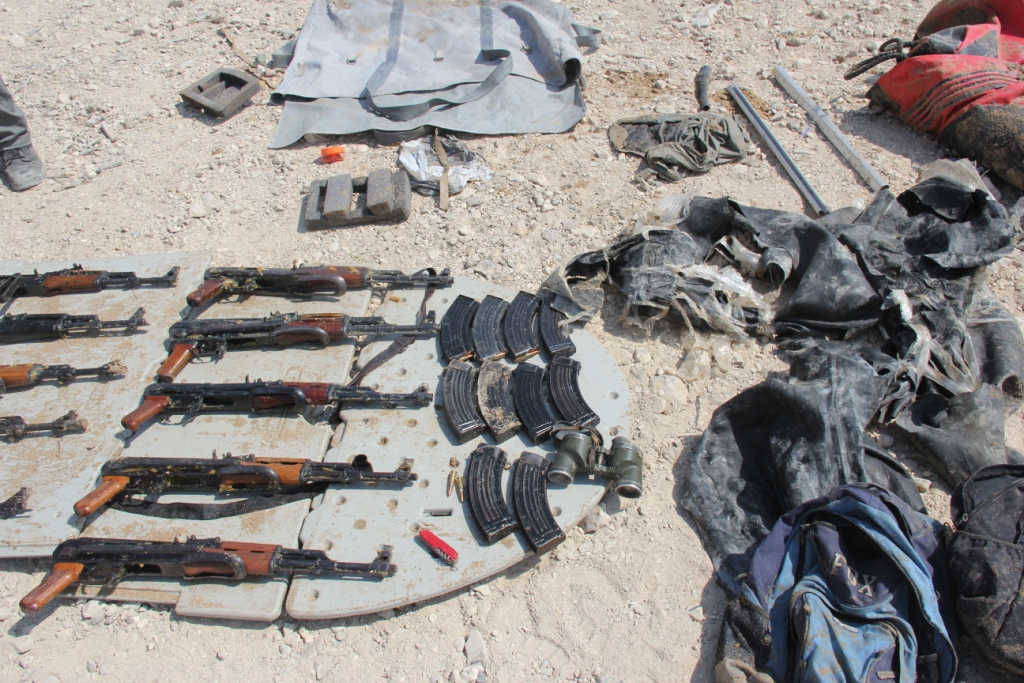Since the Islamic State’s (ISIS) dramatic rise to prominence in Syria and Iraq, the group has aggressively expanded its global propaganda and recruitment operations. This is highly evident today, as a substantial number of ISIS fighters hail from western nations, such as Britain, France and the United States (US). Recently, however, the Islamic State has found a new source of recruits. Much like many fast food chains, Hollywood studios, and tech companies have done, ISIS has begun to tap into the lucrative Asian market in Malaysia and Indonesia.
ISIS has turned Southeast Asia into a valuable source of fighters, recruiting over 500 Indonesians and several dozen Malaysians to fight in Iraq and Syria. ISIS has even formed a special battalion, the Katibah Nusantara Unit, which is comprised solely of recruits from the Malay Peninsula. The battalion’s actions have become a source of publicity forparticularly the unit’s capture of five Kurdish-held territories in Syria. These gains were highlighted on social media in the Malay and Indonesian languages, undoubtedly in an effort to attract more Southeast Asian fighters.
In April 2015, the influence of Islamic State in the region was further demonstrated when Malaysian police foiled a plot by 17 ISIS-affiliated Malaysian terrorists to detonate explosives throughout the capital, Kuala Lumpur. In January 2016, ISIS claimed responsibility for an attack in Jakarta, Indonesia. The assault, which involved around 14 gunmen, featured suicide bombings and the indiscriminate shooting of civilians.
ISIS’s successful recruitment of fighters from Southeast Asia has been due largely to the sectarian tensions among the region’s Muslim communities. The vast majority of the region’s Muslim are Sunni, making them more likely to identify with ISIS, a Sunni terrorist group. Within Malaysia and Indonesia, sectarian tensions are particularly high. In Malaysia, the country’s Shi’a minority face intense persecution, in the form of arrests and fines, as Sunni religious leaders have long condemned the practice of Shi’a Islam in their country.
Similarly in Indonesia, there have been many cases of attacks against Shi’a Muslims and forced closures of Shi’a mosques. Of notable significance was an August 2012 incident in the town of Sampang, where a Sunni mob hacked a Shi’a man to death, and burned more than 30 residences. This high degree of anti-Shi’a sentiment in these countries enabled ISIS recruiters to appeal to particularly extreme Sunnis, usually through social media and other online forums, by framing their activities as a crusade against Shi’a Islam.
Notwithstanding this success, ISIS nevertheless does face some significant obstacles in its Southeast Asian recruitment efforts. One challenge is that most of the Muslims in the region do not speak Arabic. This language barrier renders the Islamic State’s abundance of Arabic propaganda ineffective, forcing the group to devote greater resources to developing propaganda delivered in the local language. Even for those who are recruited to fight in Iraq and Syria, the difference in language severely impedes the effective integration of Asian militants within ISIS forces.
At the same time, the relatively high standard of living that Muslims possess in the economically successful countries of Indonesia and Malaysia further hampers the appeal of the Islamic State. Whereas Middle-East Muslims often face conditions of significant poverty, while those living in the West often face discrimination and alienation, Muslims living in Southeast Asian, where Islam is the predominant religion enjoy a comfortable standard of living. Since ISIS recruiters prey on society’s most isolated and desperate, the favorable conditions for the region’s Muslims makes recruitment more difficult for the Islamic State.
For Malaysia and Indonesia, which are ruled by regimes with authoritarian elements, maintaining domestic order is a top priority. Thus, the threat posed by ISIS is of utmost concern to these governments. Despite the fact that these countries already possess robust counter-terrorism infrastructures, as well as highly developed programs to combat religious radicalization, it is worrisome that ISIS has still been able to gain a foothold in the region.
While ISIS’s presence does not yet pose an urgent threat to public order, the group’s activities in the region, coupled with the possibility of domestic attacks by fighters returning from Iraq and Syria, could pose serious consequences for national security and public safety. It is therefore crucial that Southeast Asian nations continue to combat and curtail the influence of the Islamic State within their borders, and remain vigilant against the dangers of homegrown terror.




